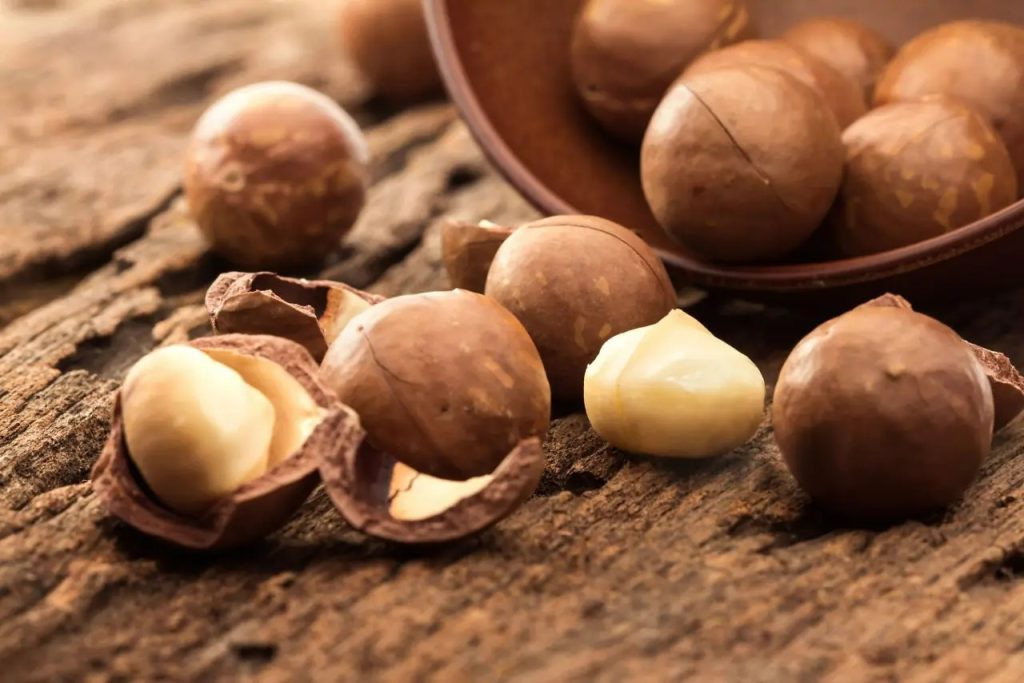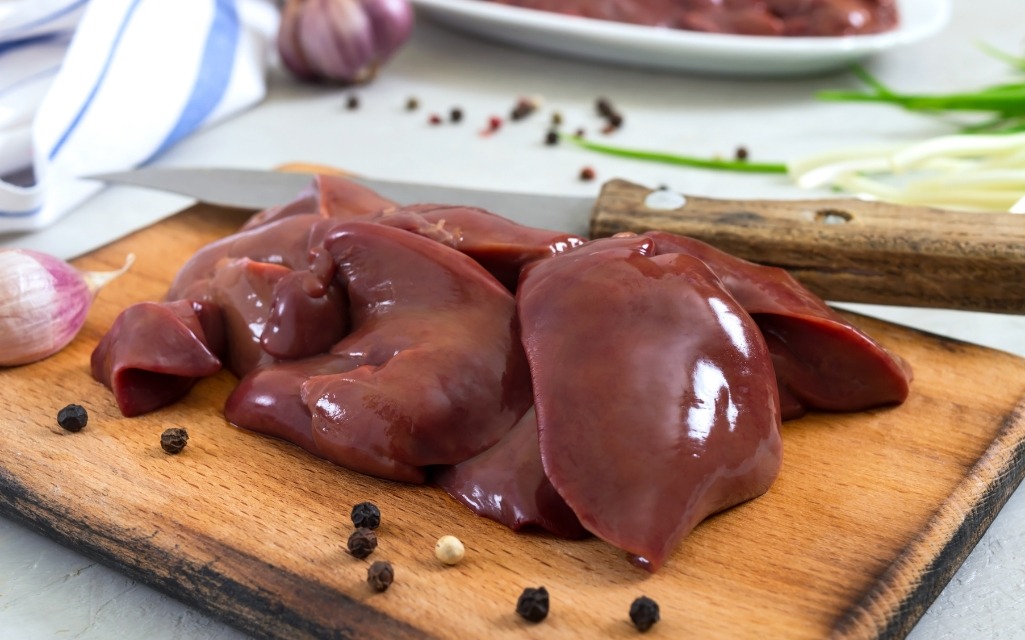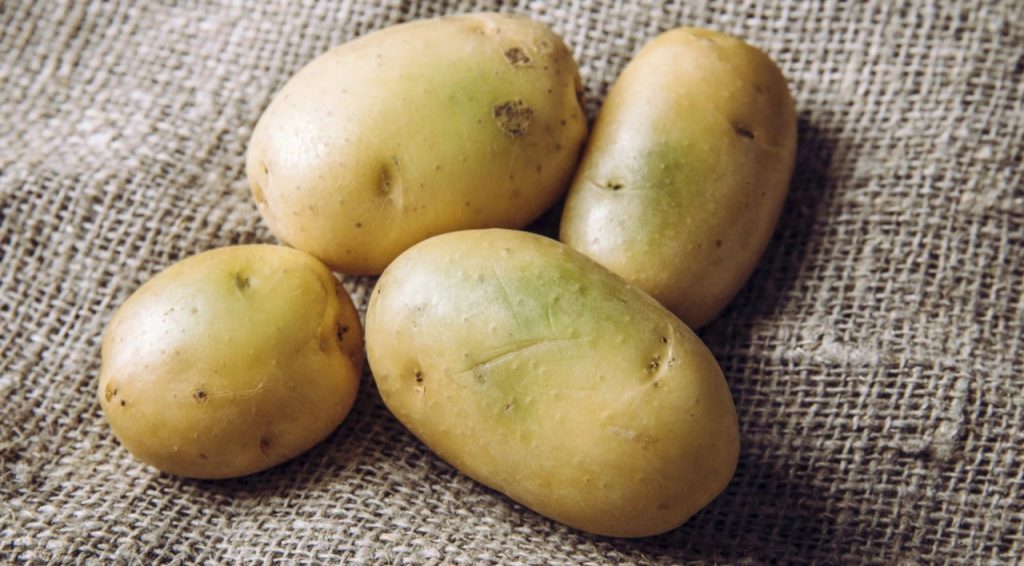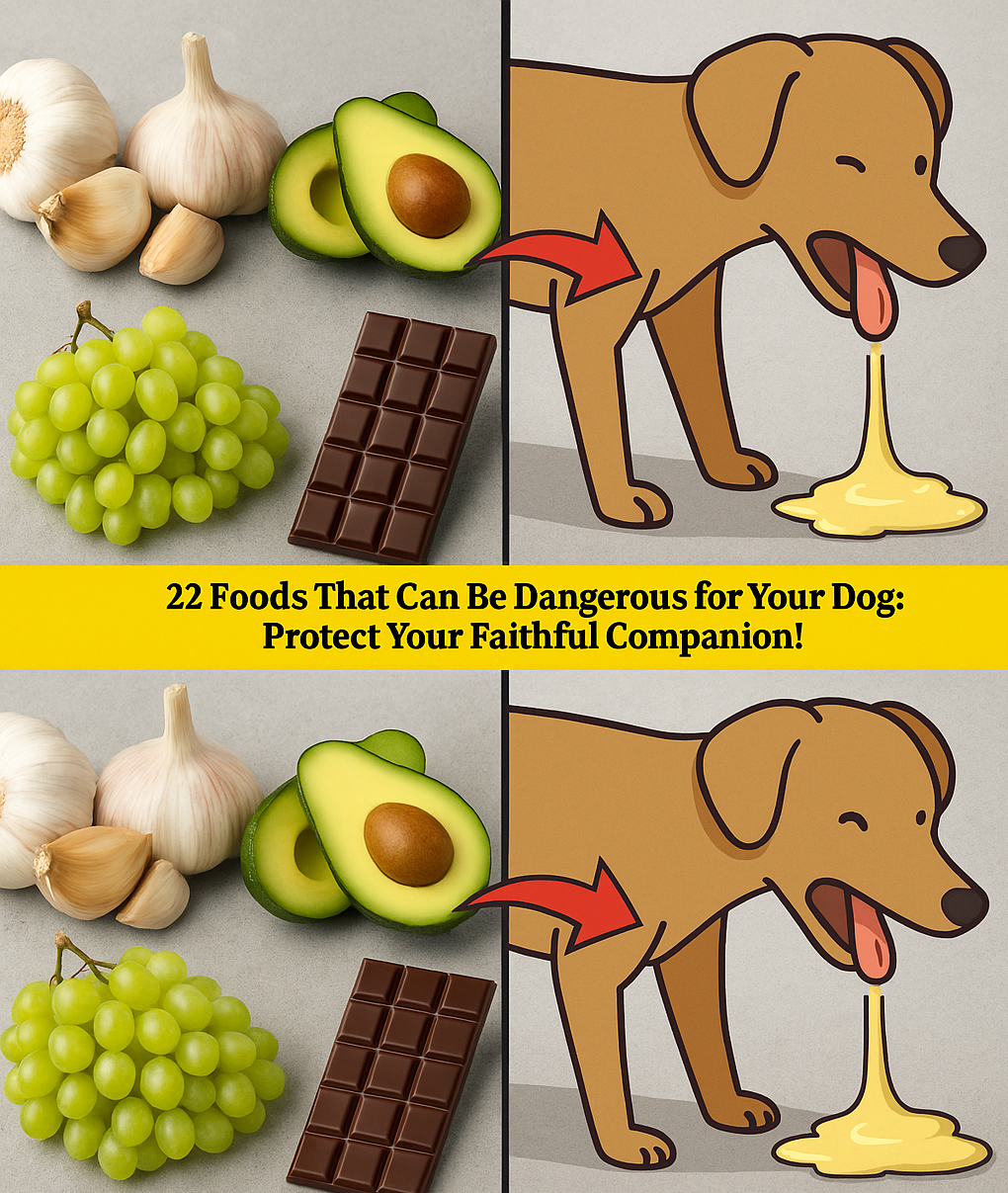11. Stone Fruits (like peaches, plums, cherries)
Their pits can block the digestive system or release cyanide—a poisonous compound.
12. Green Tomatoes and Tomato Leaves
These contain solanine, a natural toxin that can affect the gastrointestinal and nervous systems.
13. Wild Mushrooms
Some wild mushrooms contain toxins that can lead to liver damage, hallucinations, or neurological symptoms in dogs.
14. Macadamia Nuts

Even a few of these nuts can cause weakness, vomiting, tremors, or fever in dogs.
15. Raw Fish
Raw or undercooked fish can carry bacteria or parasites harmful to dogs, leading to serious health issues.
16. Salt
Too much salt can lead to dehydration, tremors, or sodium ion poisoning in dogs.
17. Greasy or Fried Foods

High-fat foods can inflame the pancreas, causing pancreatitis—an extremely painful condition for dogs.
18. Spicy or Heavily Seasoned Foods
Spices and seasonings can irritate your dog’s stomach and may lead to vomiting or diarrhea.
19. Too Much Liver

While liver can be healthy in small portions, excessive amounts may lead to vitamin A toxicity, affecting bones and joints.
20. Apple Seeds
Apple seeds contain traces of cyanide, which can be dangerous if eaten in large amounts.
21. Sugary Drinks
Sodas and sugary beverages can contribute to obesity, diabetes, and tooth decay in dogs.
22. Raw Potatoes and Green Potato Skins

These contain solanine—a toxic compound that can affect your dog’s digestive and nervous systems.
What to Do If Your Dog Eats Something Dangerous
If your dog eats any of the foods listed above, don’t wait—call your veterinarian or a pet poison helpline immediately. Quick action can make all the difference.
Final Thoughts
Protecting your dog from harmful foods is just as important as providing them with nutritious meals. Stick to dog-safe treats and meals, and when in doubt, always check with your vet before introducing anything new to your dog’s diet.
11. Stone Fruits (like peaches, plums, cherries)
Their pits can block the digestive system or release cyanide—a poisonous compound.
12. Green Tomatoes and Tomato Leaves
These contain solanine, a natural toxin that can affect the gastrointestinal and nervous systems.
13. Wild Mushrooms
Some wild mushrooms contain toxins that can lead to liver damage, hallucinations, or neurological symptoms in dogs.
14. Macadamia Nuts

Even a few of these nuts can cause weakness, vomiting, tremors, or fever in dogs.
15. Raw Fish
Raw or undercooked fish can carry bacteria or parasites harmful to dogs, leading to serious health issues.
16. Salt
Too much salt can lead to dehydration, tremors, or sodium ion poisoning in dogs.
17. Greasy or Fried Foods

High-fat foods can inflame the pancreas, causing pancreatitis—an extremely painful condition for dogs.
18. Spicy or Heavily Seasoned Foods
Spices and seasonings can irritate your dog’s stomach and may lead to vomiting or diarrhea.
19. Too Much Liver

While liver can be healthy in small portions, excessive amounts may lead to vitamin A toxicity, affecting bones and joints.
20. Apple Seeds
Apple seeds contain traces of cyanide, which can be dangerous if eaten in large amounts.
21. Sugary Drinks
Sodas and sugary beverages can contribute to obesity, diabetes, and tooth decay in dogs.
22. Raw Potatoes and Green Potato Skins

These contain solanine—a toxic compound that can affect your dog’s digestive and nervous systems.
What to Do If Your Dog Eats Something Dangerous
If your dog eats any of the foods listed above, don’t wait—call your veterinarian or a pet poison helpline immediately. Quick action can make all the difference.
Final Thoughts
Protecting your dog from harmful foods is just as important as providing them with nutritious meals. Stick to dog-safe treats and meals, and when in doubt, always check with your vet before introducing anything new to your dog’s diet.





